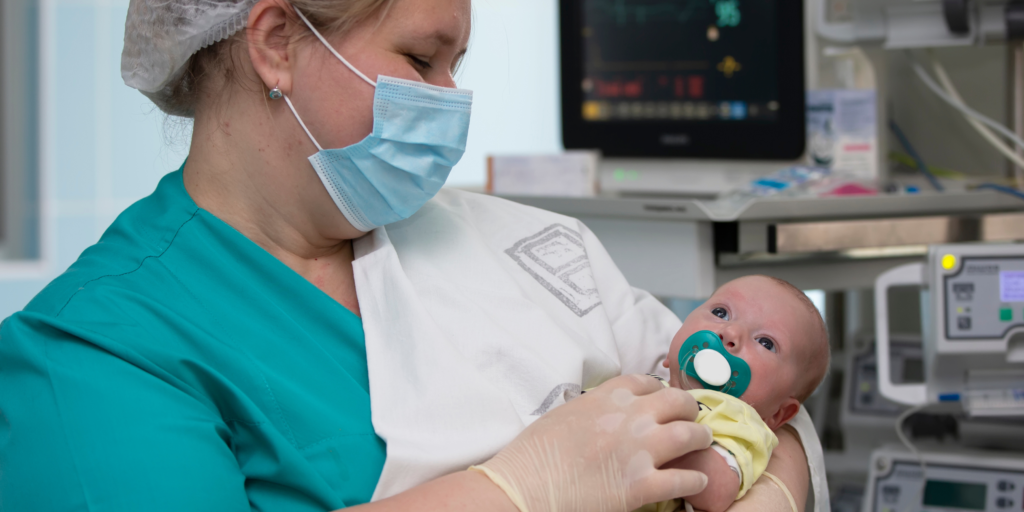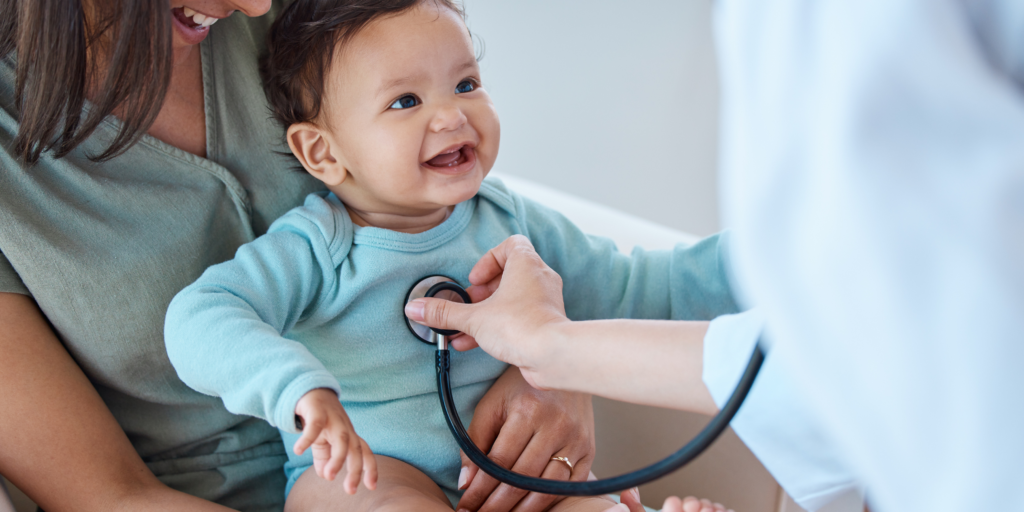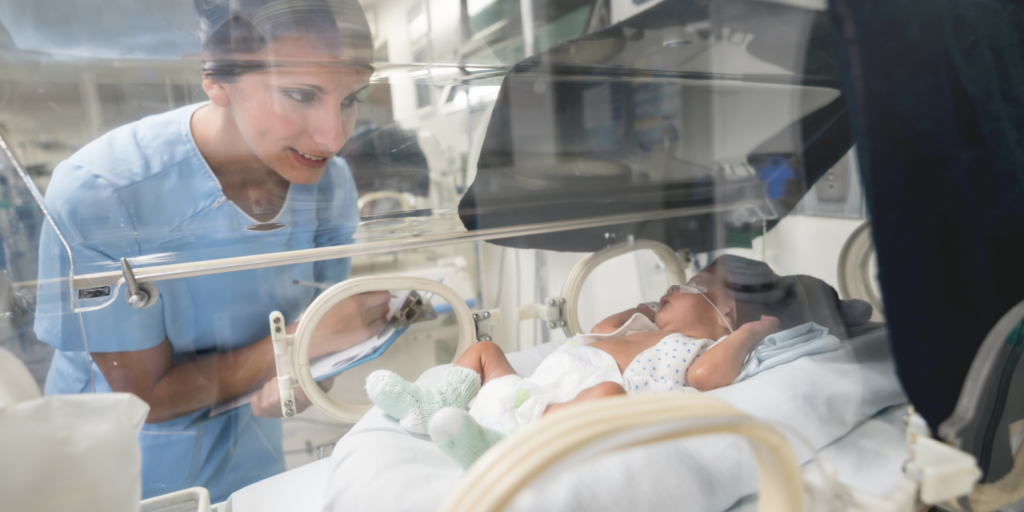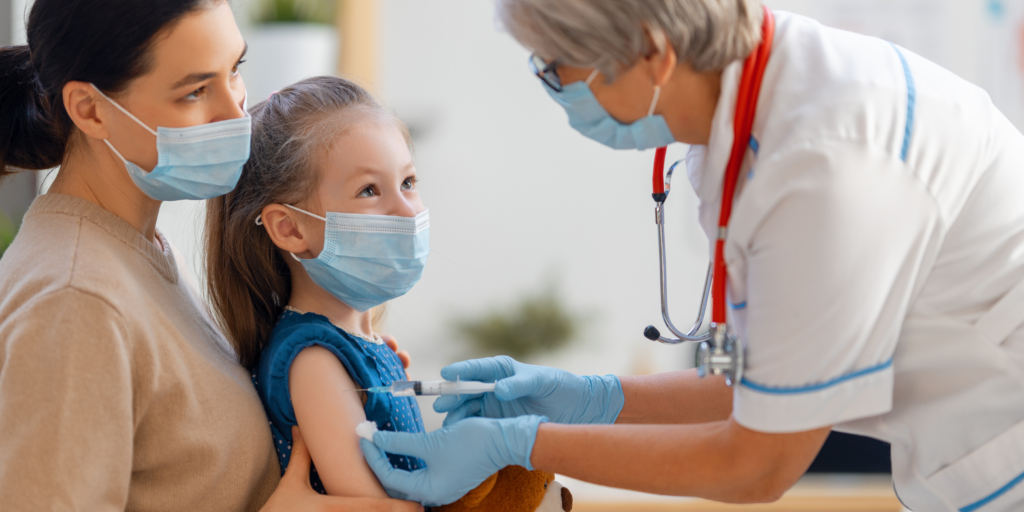Our Services
Home > Pages > Our Services
The Best Medical And General Practice Care!
GENERAL PEDIATRIC SERVICES

1. Acute Illness
Acute illness refers to a sudden and short-term health condition that can affect kids. It’s like a surprise visitor that brings temporary changes to our bodies. Sometimes, we catch a cold or get a tummy ache out of the blue. Acute illnesses can make us feel unwell and uncomfortable, but the good news is that they usually go away quickly with proper care. These illnesses might include things like a fever, sore throat, cough, or upset stomach. It’s important to remember that even though acute illnesses can make us feel yucky, our bodies are strong and resilient. With some rest, plenty of fluids, and a little bit of extra care, we’ll be back to our energetic and playful selves in no time!
2. Baby Growth & Development
It is an exciting journey filled with remarkable changes and milestones. From the moment they are born, babies begin to grow and develop in various ways. In the first year, they undergo rapid physical growth, with their weight, height, and head circumference increasing significantly. They also acquire new skills, such as lifting their head, rolling over, sitting up, crawling, and eventually taking their first steps. As they grow, their cognitive abilities expand, and they start to explore the world around them with curiosity. They learn to grasp objects, babble, and eventually utter their first words. Socially, babies develop attachments to their caregivers, recognizing familiar faces and seeking comfort and security. Each stage of baby growth and development is a unique and awe-inspiring process that paves the way for a lifetime of learning and discovery.


3. Basic Emergency Care
Basic emergency care for kids is crucial in ensuring their safety and well-being during unexpected situations. It is essential for parents and caregivers to have a basic understanding of first aid techniques to effectively respond to common childhood emergencies. This includes knowing how to assess and manage minor injuries such as cuts, bruises, and burns, as well as recognizing the signs of more serious conditions like choking, allergic reactions, or febrile seizures. Being familiar with CPR and the Heimlich maneuver can also be lifesaving skills in critical situations. Additionally, creating a safe environment and having emergency contact information readily available are important preventive measures. By equipping themselves with these fundamental emergency care skills.
4. Common Childhood Ailments
Common Childhood Ailments can sometimes be bothersome, but they are a normal part of growing up. Kids often experience ailments such as the common cold, flu, and ear infections. The common cold is characterized by a runny or stuffy nose, sneezing, coughing, and sometimes a mild fever. The flu shares similar symptoms but tends to be more severe, with high fever, body aches, and fatigue. Ear infections can cause pain, discomfort, and temporary hearing loss. Other common ailments include stomachaches, headaches, and skin rashes. It’s essential for kids to rest, drink plenty of fluids, and receive proper medical care when necessary. With the help of parents, doctors, and a little bit of patience, most childhood ailments can be overcome quickly, allowing kids to get back to their playful and adventurous selves in no time.


5. Developmental Assessment
It is a comprehensive process that involves evaluating various aspects of a child’s growth and development. It aims to assess a child’s physical, cognitive, social, and emotional skills to determine their overall developmental progress. This assessment involves observing the child’s behaviors, interactions, and abilities in different contexts, such as at home, school, or during play. Developmental assessments may include standardized tests, observations, interviews with parents and caregivers, and reviewing medical records. The findings from these assessments help identify areas of strength and areas that may need additional support or intervention. By conducting developmental assessments, professionals can gain valuable insights into a child’s abilities, identify developmental delays or disorders, and create appropriate strategies and interventions to optimize the child’s growth and well-being.
6. Immunisation
It is a crucial aspect of healthcare for kids, playing a vital role in protecting them from various infectious diseases. By administering vaccines, children’s immune systems are strengthened and trained to recognize and fight off harmful pathogens. Immunization provides a safe and effective way to prevent illnesses such as measles, polio, diphtheria, and tetanus, among others. These vaccines are designed to trigger an immune response that produces antibodies, creating immunity against specific diseases. It is essential for parents and caregivers to ensure that children receive their recommended immunizations according to the vaccination schedule provided by healthcare professionals. By prioritizing immunization, we can safeguard the health and well-being of children, preventing the spread of infectious diseases and enabling them to grow up healthy and protected.


7. Newborn Examination
It is a vital component of pediatric care aimed at assessing the overall health and well-being of infants in their earliest days of life. Conducted by trained healthcare professionals, such as pediatricians or neonatal nurses, this comprehensive examination encompasses various aspects of a newborn’s physical and developmental characteristics. The examination typically includes measurements of weight, length, and head circumference, as well as a thorough assessment of vital signs such as heart rate, respiratory rate, and temperature. Healthcare providers also examine the infant’s skin, eyes, ears, mouth, and limbs, looking for any signs of abnormalities or congenital conditions. Additionally, the examination involves checking the baby’s reflexes, muscle tone, and overall neurological function to ensure proper development.
8. Infectious Diseases
Infectious diseases are illnesses that are caused by tiny germs called pathogens. These germs can be bacteria, viruses, fungi, or parasites. They can make us sick if they enter our bodies and start multiplying. Common examples of infectious diseases include the flu, colds, chickenpox, and stomach bugs. They can spread from person to person through coughing, sneezing, or touching contaminated surfaces. That’s why it’s important to wash our hands regularly and cover our mouths and noses when we cough or sneeze. Doctors and scientists work hard to understand and treat infectious diseases, and they have developed vaccines and medicines to help prevent and fight against them. By staying clean, practicing good hygiene, and getting vaccinated.


9. Travel Health
Travel health for kids is an essential aspect to consider when planning a family trip. It involves taking precautions and ensuring the well-being of children during their journeys. Prior to traveling, parents should consult with a pediatrician to discuss any necessary vaccinations or medications required for specific destinations. It is crucial to pack a well-stocked travel health kit, including items like sunscreen, insect repellent, band-aids, and any prescription medications. Encouraging regular handwashing and maintaining good hygiene practices can help prevent the spread of germs and illnesses. Additionally, parents should research the local food and water safety guidelines and ensure that children consume only safe and hygienic meals and drinks.By prioritizing travel health for kids, parents can ensure their little ones have a safe.
10. Neonatology
Neonatology is a branch of medicine that focuses on taking care of newborn babies. Neonatologists are doctors who specialize in treating and caring for infants, especially those who are born prematurely or with medical conditions requiring specialized attention. These tiny patients are often fragile and need extra care to help them grow and develop in the best possible way. Neonatology teams work in neonatal intensive care units (NICUs) where they provide round-the-clock monitoring and treatment to ensure the health and well-being of these newborns. They use advanced medical equipment and techniques to address any medical issues and support the baby’s growth and development. Neonatology is a vital field that plays a crucial role in giving newborns the best start in life.

Book An Appointment
Please feel welcome to contact our friendly reception staff with any general or medical enquiry. Our doctors will receive or return any urgent calls.
Helping Patients From Around the Globe!!
Our staff strives to make each interaction with patients clear, concise, and inviting. Support the important work of Medicsh Hospital by making a much-needed donation today.

+
1102 Beverley Rd Brooklyn, New York 11226 U.S.
+
2307 Beverley Rd Brooklyn, New York 11226 U.S.
+
3002 Beverley Rd Brooklyn, New York 11226 U.S.

